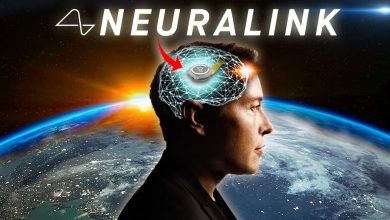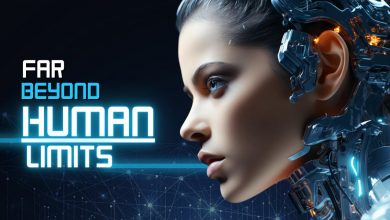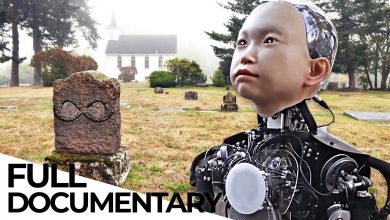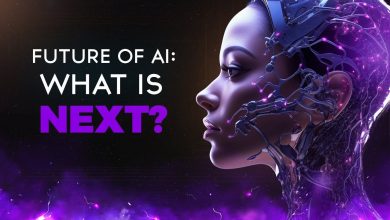Beyond Human: Embracing the Superhuman Potential of AI
With advancements in technology, AI can enable humans to transcend their current limitations and evolve beyond their human capacity.
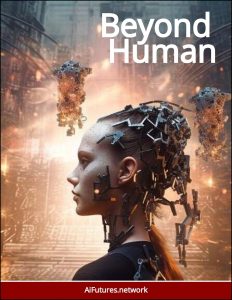 Advancements in artificial intelligence (AI) have the potential to revolutionize various aspects of human life.
Advancements in artificial intelligence (AI) have the potential to revolutionize various aspects of human life.
One area where AI shows immense promise is in the pursuit of immortality.
By leveraging AI technologies, humans may be able to extend their lifespan and potentially achieve immortality.
Immortality has been a subject of fascination for humans throughout history. The idea of living forever has captivated our imaginations, and with the advancements in AI, it might not be as far-fetched as it once seemed.
Extending Human Life
AI has made significant strides in recent years, enabling machines to perform complex tasks and learn from vast amounts of data. This progress has paved the way for AI to play a crucial role in extending human life.
One of the most promising applications of AI in achieving immortality is in the field of healthcare. AI algorithms can analyze vast amounts of medical data, identify patterns, and make accurate predictions. By leveraging AI, doctors can detect diseases at an early stage, develop personalized treatment plans, and improve overall healthcare outcomes.
Furthermore, AI can assist in the development of advanced medical technologies, such as nanobots capable of repairing damaged cells and tissues. These nanobots, guided by AI, could potentially rejuvenate the human body and slow down the aging process.
Enhancing Cognitive Abilities
One of the most significant ways AI can enable humans to evolve beyond their human capacity is by enhancing cognitive abilities. AI-powered systems can process information at an unprecedented speed, enabling humans to access and analyze vast amounts of data quickly. This can lead to improved decision-making, problem-solving, and critical thinking skills.
Additionally, AI can assist in memory augmentation by providing instant access to information and acting as a personal digital assistant. With AI, humans can offload routine cognitive tasks, allowing them to focus on higher-level thinking and creative endeavors.
Augmenting Physical Capabilities
AI can also augment human physical capabilities, enabling individuals to perform tasks that were previously beyond their reach. Robotics and exoskeleton technologies powered by AI can enhance strength, endurance, and precision, making humans more efficient and productive in physically demanding tasks.
Furthermore, AI can assist individuals with disabilities by providing assistive technologies that compensate for their limitations. Prosthetic limbs controlled by AI algorithms can restore mobility and functionality, enabling individuals to regain independence and improve their quality of life.
Expanding Creativity and Innovation
AI has the potential to unlock new levels of creativity and innovation in humans. By analyzing vast amounts of data and identifying patterns, AI can generate insights and suggestions that can inspire human creativity. AI-powered tools can assist artists, designers, and writers in generating new ideas and pushing the boundaries of their respective fields.
Additionally, AI can facilitate collaboration and collective intelligence by connecting individuals with similar interests and expertise. This can lead to the emergence of new ideas, solutions, and innovations that would not have been possible without AI.
Improving Healthcare and Longevity
AI has the potential to revolutionize healthcare and contribute to human longevity. AI-powered diagnostic systems can analyze medical images, detect diseases at an early stage, and provide personalized treatment recommendations. This can lead to more accurate diagnoses, improved patient outcomes, and reduced healthcare costs.
Furthermore, AI can assist in drug discovery and development by analyzing vast amounts of data and identifying potential drug candidates. This can accelerate the development of new treatments and therapies, ultimately improving the quality of life for individuals suffering from various diseases.
Brain Upload and Preservation
Another avenue where AI could enable immortality is through brain upload and preservation. The concept involves transferring the contents of a human brain, including memories, thoughts, and consciousness, into a digital format.
AI algorithms would play a crucial role in mapping and simulating the intricate connections within the brain. By creating a digital replica of the brain, individuals could potentially continue to exist in a virtual environment even after their physical bodies cease to function.
Preserving Consciousness
Preserving consciousness is a fundamental aspect of achieving immortality. AI could help in maintaining and even enhancing consciousness by simulating neural activity and creating virtual environments that mimic reality.
Advancements in AI could lead to the development of sophisticated virtual reality systems that can provide immersive experiences, indistinguishable from the physical world. By integrating our consciousness into these virtual environments, we could continue to learn, grow, and interact with others indefinitely.
Ethical Considerations
The pursuit of immortality through AI raises numerous ethical considerations. Questions regarding the distribution of resources, potential inequalities, and the impact on the natural order of life arise. It is crucial to approach these advancements with careful consideration and ensure that the benefits are accessible to all.
Additionally, the preservation of individual identity and the potential consequences of living indefinitely must be thoroughly examined. Society would need to redefine concepts such as aging, reproduction, and purpose in a world where mortality is no longer a certainty.
Conclusion
AI holds immense potential in enabling humans to evolve beyond their human capacity. By enhancing cognitive abilities, augmenting physical capabilities, expanding creativity and innovation, and improving healthcare, AI can unlock new levels of human potential.
However, it is crucial to approach the development and deployment of AI ethically and responsibly to ensure its benefits are accessible to all and mitigate potential risks. As AI continues to advance, the possibilities for human evolution are limitless.
